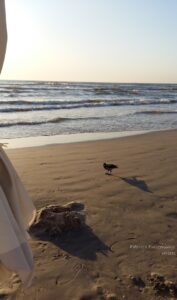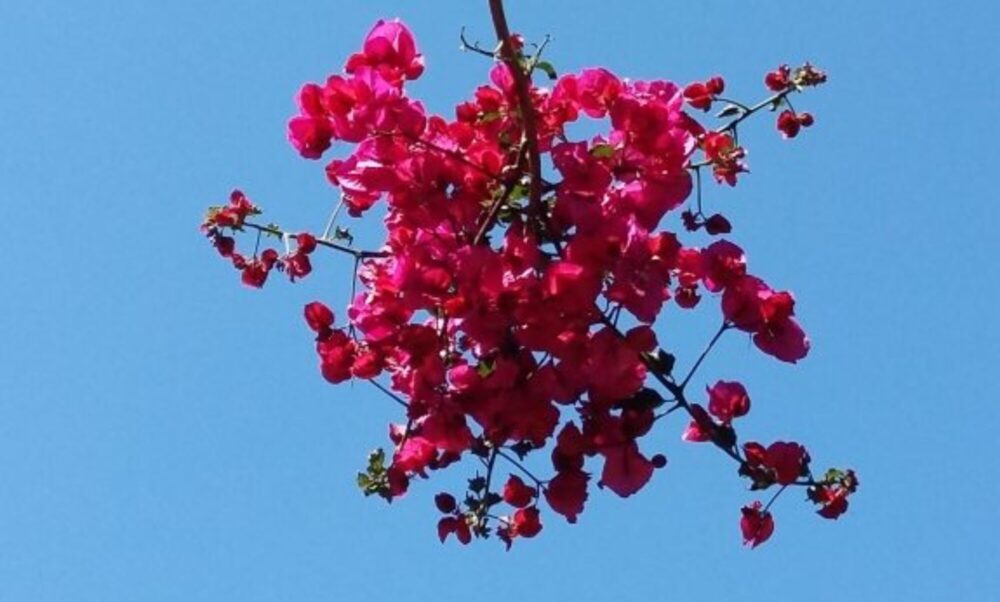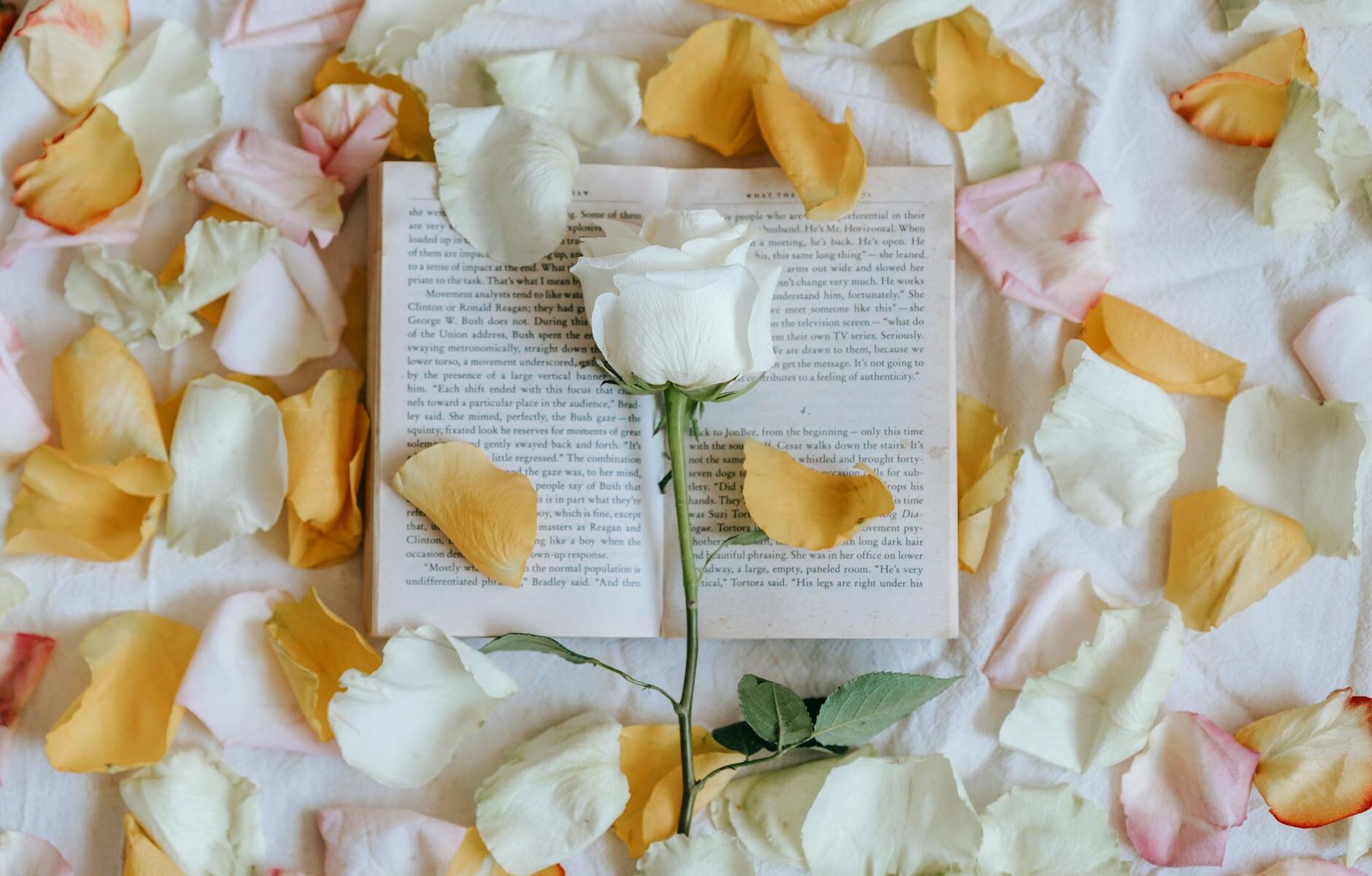Finding enjoyment in poetry is as simple as reading the poem on the page.
I remember an autumn day during my primary school years. We had literature class first thing in the morning, the classroom bathed in the glow of ceiling neon lights. It was a cold atmosphere and we had to read a poem by Romanian poet Mihai Eminescu, “Down where the lonely poplars grow” – Pe lângă plopii fără soț – and share our thoughts about it.
“Down where the lonely poplars grow
Mihai Eminescu, Down where the lonely poplars grow
How often have I erred;
My steps that all the neighbours know
You only have not heard.”
I still remember a scratch on my wooden desk, left there by another weary student no doubt. And it made much more sense to me than the words of a man who seemed lost.
But years passed and, with life experience, that poem made more and more sense. I think also because I learned how to read poetry. How to allow the words blow over me the way the wind does at the sea. I learned how to simply read a poem, instead of trying to figure it out.

I believe many of us have had our fair share of unpleasant experiences with poetry in school, where we felt pressured to conform to what the teacher or curriculum demanded. This made us doubt the validity of our own opinions, even though they were just as legitimate.
I also believe that such school experiences with poetry may have discouraged many of us from both reading and attempting to write poetry. It’s truly unfortunate because writing poetry is an absolute delight.
What is a poem and what gives it its powers?
A poem simply captures an experience and considers a specific moment. A compelling poem has the ability to transport you into the poet’s perspective, allowing you to briefly relive the event firsthand.
A poem acts as a verbal snapshot, capturing a specific moment with the precision of a photograph. It engages with language in ways that no other literary form does, embracing the sounds, rhythms, and shapes of words to elicit profound and various experiences, and not only visual (as a photograph would).
The surplus of words apparent in a poem serves this purpose lone, of crafting an immersive experience for the reader.
A poem is a bridge between the poet’s experience and the reader’s chance to relieve the same, memorable, experience.
Is poetry all that different from other literary forms?
For sure a poem is not a story. There is no plot in a poem, no world building, and the characters found in a poem do not react or evolve, as they would do in a novel.
A poem is not a word puzzle either, it is not a riddle. Although you will find metaphors, puns, and other literary techniques in poems, they will only make the poem clearer by throwing light on it.
How to read a poem and enjoy it?
When you read a poem, release the urge to extract its meaning.
Just enjoy it. Enjoy its rhythms, the way the words are strung together.
Enjoy the pictures it creates in your mind. Or the emotions it stirs inside you.
Enjoy the place where it will transport you. How is the weather there? What does is smell like? Is it enjoyable? Take it all in.
Unwind. Pause. Reflect on the scene where you’ve been transported. Embrace the tranquil retreat bestowed upon you.
The essence of poetry lies entirely in the experience it offers to us, the readers.
~~~~
I am thrilled to share with you the book trailer for “Treasuring Poetry 4: In Touch with Nature“, a collaborative poetry book featuring works by Andrew McDowell, Robbie Cheadle, Patricia Furstenberg, Marcia Meara, Luanne Castle, D. L. Finn, Emily Gmitter, Kaye Lynne Booth, Selma Martin, Merril D. Smith, Frank Prem, Colleen Chesebro:
I am giving away ARC (advanced reading copies) of “Treasuring Poetry 4: In Touch with Nature“. If you would like one, let me know in comments below and I will send you one in an email.
I am grateful to fellow writers Kaye Lynne Booth and Robbie Cheadle for compiling and editing this poetry collection.
While each form has distinct characteristics and strengths, poetry stands out for its ability to distill emotion and meaning into a concentrated and often lyrical expression, transporting readers to a world where language transcends mere communication to elicit profound thoughts and feelings. It is that simple.
Happy reading!
Let me know if you would like your free copy of “Treasuring Poetry 4: In Touch with Nature“!




My son’s coach Mihai took the team on a trip to Romania and I joined as a chaperone. I remember Mihai talking about Mihai Eminescu. Poetry can be very beautiful, like music, but you have to be in the right mind to appreciate it. I did not know about Treasuring Poetry 4: In Touch with Nature. It is a great trailer.
Thank you, Thomas.
Yes, we are very proud of our National poet Eminescu. I believe that his poetry looses its musicality upon translation.
Robbie Cheadle did a wonderful job with the book trailer. This poetry book will be released soon.
Thank you, Patricia, I am so pleased you like the trailer.
Thank you, Thomas, I’m glad you like the trailer. Patricia is a bit ahead of me with this book promotion. I am delighted to feature in an anthology with her.
A lovely post, Patricia!
There are narrative poems that tell a story (like ballads), but yes, you are right, it’s best to immerse yourself in the sound, rhythm, and imagery.
HI Merril, I couldn’t agree more. Thank you for your wonderful contribution to Treasuring Poetry 4.
You’re welcome, Robbie!
Ah, so glad you shared your thoughts, Merril. 🙂 Yes, indeed.
Thank you for the visit.
HI Patricia, thank you for sharing this wonderful reflection on poetry and for the promotion for Poetry Treasures 4. I am delighted to feature in an anthology with you and all the other talented contributors.
Such a great pleasure, Roberta. Yes, I read the poems included and I was transported to a through time and space. Hard to pick one favorite.
That is marvelous, Patricia.
Such a great post Patricia! I love poetry and I agree with you when you say the best way to enjoy a poem is to simply read it. Congratulations on your book “Treasuring Poetry 4: In Touch with Nature” and thank you for sharing the lovely trailer.
Thank you so much, Blanca. And very happy for your visit.
I enjoy reading poetry, Patricia. Your insights are very good reminders, particularly to let yourself experience the poem.
I am so glad to hear that you do, Dan. Poetry feeds the soul.
It does!
Thank you for this informative and practical post, Patricia. Poetry isn’t really my cup of tea, but after Puskin’s Eugene Onegin I think it’s a worthwhile pursuit. Your tips on reading and enjoying poems will help in that direction.